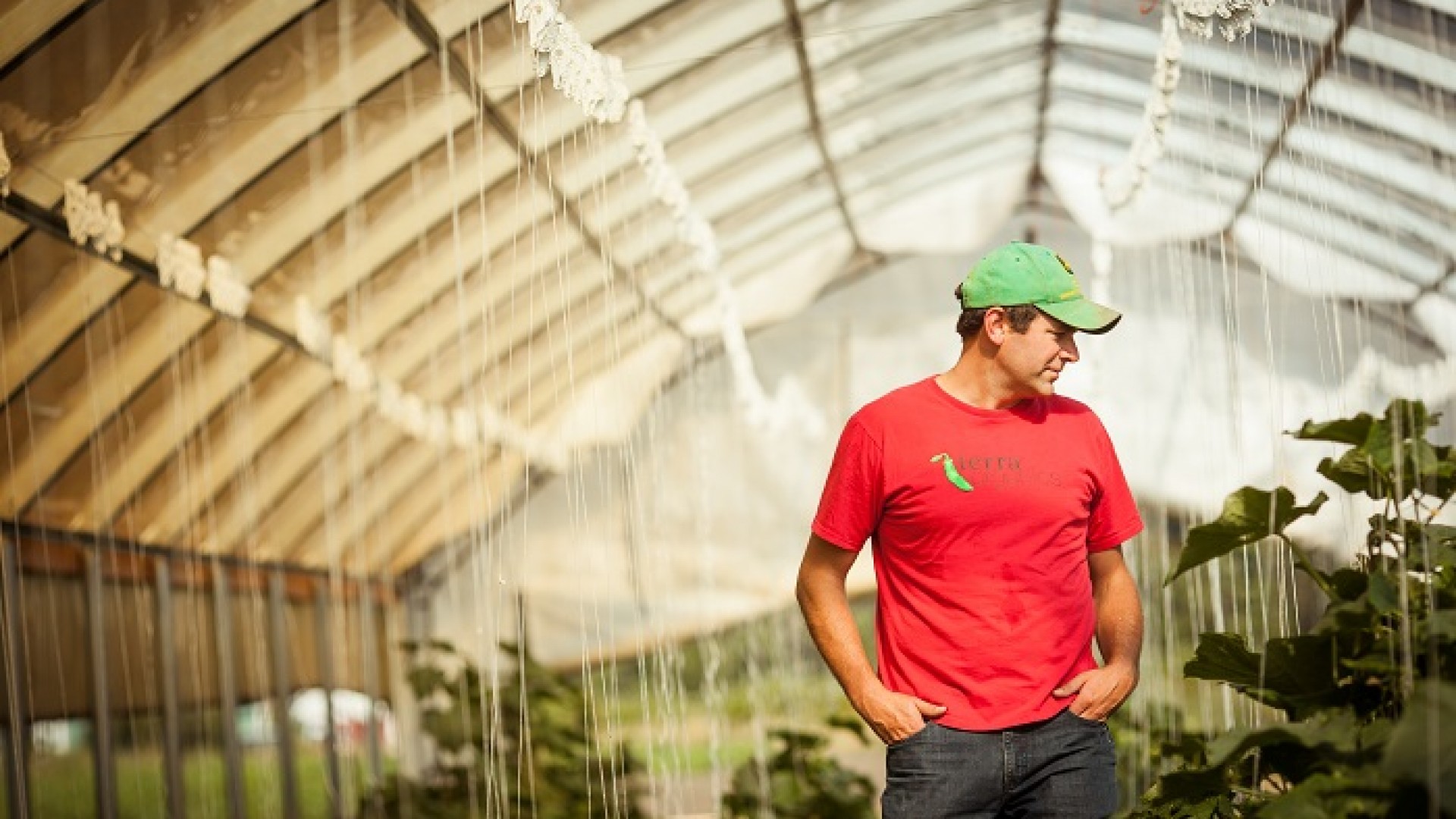
Tim Crosby, Cascadia Foodshed Financing Project
Impact investing seeks to combine financial returns with social and environmental benefits. We have long held the tools to assess financial returns, but measuring social and environmental returns is far more complex. Impact investing in food systems gets even more complicated because we're aiming for environmental and social goals that may not necessarily be aligned — for example, investing in small farmers who use organic growing practices while funding strategies to make healthy food more available and affordable to low-income families.
At the Cascadia Foodshed Financing Project (CFFP), we've developed a set of principles and goals to review these investment opportunities and judge their success. The principles fall into the following categories: health, social equity, family-wage job creation and preservation, rural community resilience, and ability to influence policy. We'll be using this process with one of our first investments: Terra Organics, a Tacoma-based business that offers year-round delivery of organic fruits and vegetables, including seasonal Community Supported Agriculture (CSA) boxes, and is committed to organic production practices like long-term crop rotations, green manures and compost.
Getting Investees Deal-Ready
When we contacted Dan Hulse, Terra’s co-founder, about his needs last year, he told us Terra was seeking growth capital to expand, but his loan request had been denied by commercial banks because they did not have experience evaluating organic farm businesses and Terra’s financial statements were "not in order." Through our launch partner, Slow Money Northwest, we helped him separate his personal assets from the business assets — a typical challenge for start-up businesses that use personal funds and credit cards to finance their early efforts — to get his financial statements ready for prospective investors.
Meanwhile, across town, the Greater Tacoma Community Foundation (GTCF) was developing an impact investment strategy, exploring the field by meeting with a wide range of stakeholders: organizing associations, other investors and even potential borrowers. The foundation eventually engaged two community development finance institutions (CDFIs) as partners, Craft3 and National Development Council (NDC) to help them deploy capital directly into Pierce County. As the foundation learned about Terra Organics through Slow Money Northwest, its staff asked the National Development Council to take a look at the company’s loan application.
“At GTCF, we’re not limited to making investments or grants; we see our role in the community much more broadly," said Gina Anstey, vice president of grants and initiatives. "If we can help connect local small businesses with other forms of community capital, we’re doing our job."
After independently reviewing the loan documents and meeting with the Terra Organics team, NDC’s Grow America Fund provided a 10-year term loan at a variable interest rate of about 4.5%, well below market rate for this type of loan. The loan refinances approximately $110,000 of higher interest debt, saving the company nearly $16,000 annually and freeing up cash flow for working capital. Additionally, NDC provided $120,000 in permanent working capital for Terra Organics to purchase and grow necessary non-perishable inventory and purchase new equipment, including a freezer that allows the company to expand its meat products.
"We operate in a low margin industry which is increasingly competitive and this financing was essential to keep us growing," Dan said.
What We're Measuring
Dan praised the financial advantages of the loan. But what of its social and environmental impact? CFFP believes the investment in Terra Organics will have a measurable impact in nearly every category we seek to influence:
- Family wage job creation: Over the next five years, Terra plans to create three new management positions, 1.5 new sales and administration positions, and hire 30 new operations employees, for a total of over 34 new jobs in Pierce County.
- Health: Terra supplies farm-fresh vegetables direct to consumers and institutions such as Kent and Renton School Districts, helping increase the volume of healthy food produced in an environmentally responsible manner, and protecting farmworkers from exposure to dangerous chemicals.
- Social equity: The business is located in a low-income area of Pierce County and will provide new opportunities for family-wage employment. Employees are paid higher than prevailing wages and receive benefits that many small businesses do not offer, providing opportunities for low-income families in the area to advance. In addition, a portion of Terra's wholesale business will find its way to low-income schools and institutions.
- Rural community resilience: Strengthening the direct sales channel Terra creates provides new opportunities for farmers and value-added producers in the region to sell their products at retail prices. A diversity of profitable sales channels will help stabilize rural communities.
At CFFP, we are proud to be able to assist Terra Organics reach their goals. With a strong business plan and sound financials, we are optimistic Terra will produce a healthy financial return as well as succeed in job creation, health, social equity and community resilience. We look forward to using a similar approach for facilitating the next round of investments in our regional food economy, then measuring their financial, social and environmental success.
Tim Crosby is the coordinator of Cascadia Foodshed Financing Project, part of Philanthropy Northwest’s incubation platform and regional impact investing network. He is also a partner of Social Venture Partners and Toniic Seattle, co-chair of the Sustainable Agriculture and Food Systems Funders and on the founding board of directors of Partners for Rural Washington, the state's new rural development council.


